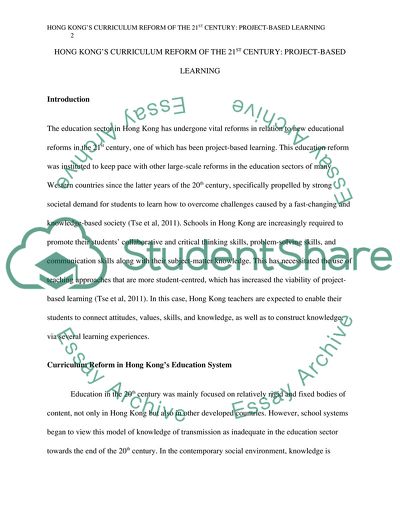Cite this document
(Hong Kongs Curriculum Reform of the 21st Century: Project-Based Case Study Example | Topics and Well Written Essays - 2000 words, n.d.)
Hong Kongs Curriculum Reform of the 21st Century: Project-Based Case Study Example | Topics and Well Written Essays - 2000 words. https://studentshare.org/education/1872465-hong-kongs-curriculum-reform-of-the-21st-century-project-based-learning
Hong Kongs Curriculum Reform of the 21st Century: Project-Based Case Study Example | Topics and Well Written Essays - 2000 words. https://studentshare.org/education/1872465-hong-kongs-curriculum-reform-of-the-21st-century-project-based-learning
(Hong Kongs Curriculum Reform of the 21st Century: Project-Based Case Study Example | Topics and Well Written Essays - 2000 Words)
Hong Kongs Curriculum Reform of the 21st Century: Project-Based Case Study Example | Topics and Well Written Essays - 2000 Words. https://studentshare.org/education/1872465-hong-kongs-curriculum-reform-of-the-21st-century-project-based-learning.
Hong Kongs Curriculum Reform of the 21st Century: Project-Based Case Study Example | Topics and Well Written Essays - 2000 Words. https://studentshare.org/education/1872465-hong-kongs-curriculum-reform-of-the-21st-century-project-based-learning.
“Hong Kongs Curriculum Reform of the 21st Century: Project-Based Case Study Example | Topics and Well Written Essays - 2000 Words”. https://studentshare.org/education/1872465-hong-kongs-curriculum-reform-of-the-21st-century-project-based-learning.


